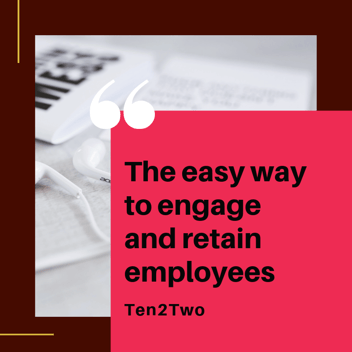Asking for flexible working at interview stage
When it comes to asking for flexibility, the advice has often been to get the job first and then ask for flexibility at a later date. Then once you have sold yourself as the ideal candidate, focusing on what you can deliver, your employer will know exactly how ambitious you are. But they won’t care particularly about the fact that you have children you need to drop off at school.
Should I get the job first, and ask for flexible working afterwards?
Well, that really depends. In the past, the advice has been for candidates to go for the role they want and then once they have been in it for a set time, asking for flexibility then. ACAS advises that employees can ask for this once they’ve been in the role for 26 weeks of service.
However, that is half a year of doing a job that potentially, really doesn’t fit with the rest of your life. And that can be a long time when you’re waking in the night to the patter of tiny feet. Or if you feel you may be missing out on seeing your child grow up.
Six months, IS a long time. You definitely need the right support network in place to make this work and also, it’s likely, the stamina of a Grecian warrior.
Should I be asking for flexible working at interview?
Well, this is the million-dollar question, so here’s what you need to weigh up before you leap in with demands about your time.
1. Employers don’t like surprises.
If you’re going for a role, there’s little point in going through several rounds of interviews only to tell the employer that you can only work two days after all. It is best to be open and upfront from the outset, but do present a good business case for why you’d make a brilliant flexible hire.
2. Some recruiters will instantly discount you for the role.
They want to find a suitable full-time candidate and fast. But not always. If the role is seeking scarce skills, for example, an employer may be more open to finding the right candidate over presenteeism.
A good recruiter should be able to see your skills and ambition, and state your case for you. It’s not completely outrageous to start off asking for flexibility, but you do need to be prepared for knock-backs.
3. Some companies already embrace flexible working.
Is this one of them? Alternatively, you could meet the employer and find out more about the job. If you sell yourself well, you can always ask at the final interview what the company policy is. But we believe it’s best to do this homework before you even apply for the role.
If a business already has lots of workers on flexible hours, you should be able to gauge their receptiveness to this. If there’s no one working flexibly and the culture seems very staid, that doesn’t mean it’s out, but it could make asking for flexible working more difficult.
Deborah O’Sullivan, Managing Director at Ten2Two says, “Show the employer that you’re open and flexible – if you’re too rigid and self-focused, you’ll come across as a problem and employers want a solutions person, not a problem person. You’ll get much further by demonstrating that you’ve thought about the impact on the wider business.”
If you’re still finding it tricky to turn up roles that offer flexible working, don’t despair. As a flexible and part-time recruiter in the south of England, Ten2Two is used to working with many forward-thinking companies and organisations who welcome flexible workers with wide arms.
Register with us today and we’ll send you details about relevant career roles you may be suitable for.
Good luck with the flexible job hunt!

 Back to resources
Back to resources 3 min read
3 min read



